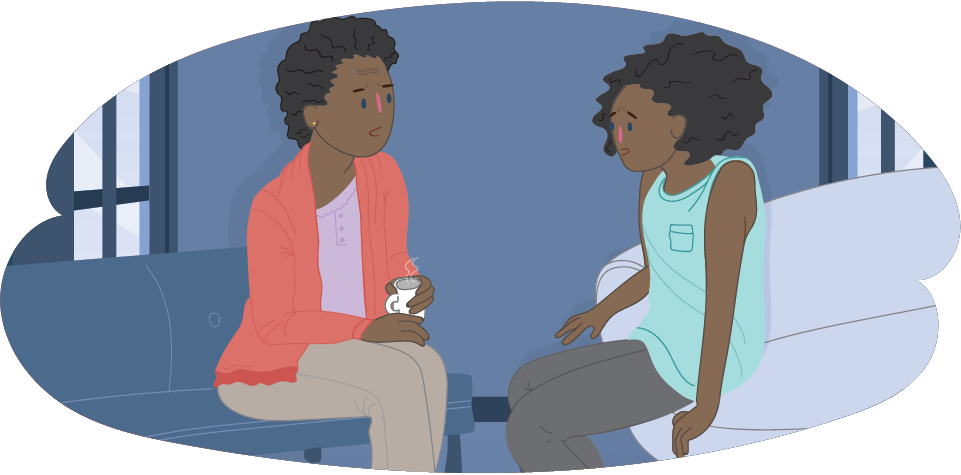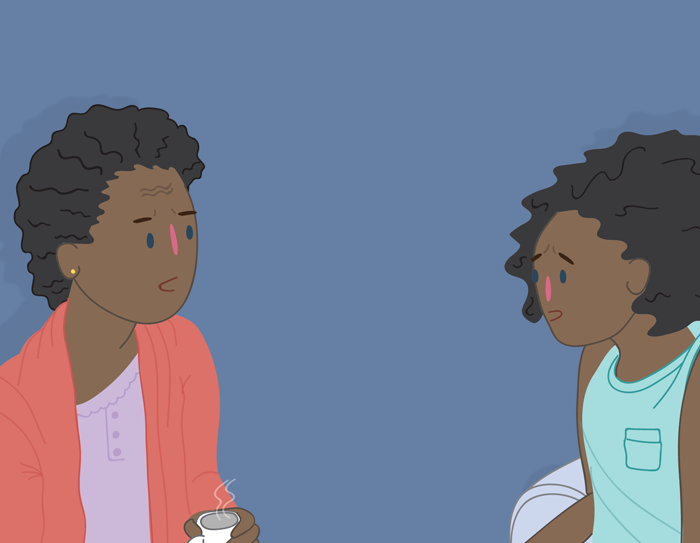Responding to disclosures of child abuse
When a child discloses abuse it can be hard to know how to respond and what to do. Here are some tips to help.

If a child tells you someone is harming them
Here are some things to keep in mind:
- The most important thing is to make sure the child feels supported and safe
- Your response can have a big impact on their ability to seek further help and recover from the trauma
- You may feel disgust, sadness, anger or disbelief. Remember, these are your feelings and you need to put them aside to be there for the child
- The timing of their disclosure will influence their immediate needs and this will determine the most appropriate response to take
If you believe a child is in immediate danger or a life-threatening situation call 000 and ask for the Police.
When a child talks about abuse
When a child talks about being abused they may:
- Feel confused, scared, guilty, ashamed, sad, angry or powerless
- Believe they are to blame or worry that no one will believe them
- Not understand that the behaviour may be abusive
- Want to protect the person responsible and be frightened for them
- Experience mixed emotions towards the person responsible
- Be worried about what will happen to them and their family
- Want to protect their family or their own reputation
- Have been threatened with more harm to themselves, others or animals if they tell anyone about the abuse
How to talk about abuse with a child…
When you respond there are some key things to remember. As difficult as it may be, it is important to:
Check how they are feeling about their safety
Write some notes about what they have told you
Respect the fact the they may only tell you some details
Respond empathically, objectively and use supportive language
Be calm, patient and listen carefully to what they are saying
Acknowledge their feelings and that it can be hard to talk about
Let them tell you in their words what happened and how they felt
Let them know you want to protect them and what you plan to do next
Give them time to talk about what has happened from their point of view
Contact an appropriate authority or child protection service listed below
Tell them if you don’t know an answer and say that you’ll find it out for them
Tell them that you’ll need to talk to someone whose job it is to keep them safe
Maintain a calm appearance by controlling expressions of panic, shock and disbelief
Ask open questions like: What happened? How does it make you feel? How often does it happen?
What to avoid when talking about abuse
When talking about abuse it’s important to avoid:
Filling in the story – by giving them words or asking leading questions like “Did mum or dad hit you?” or “Do they make you afraid”?
Asking too many questions – leave the investigating and fact finding to trained professionals
Expressing anger about the alleged abuser – they may be an adult the child loves and cares for
Confronting the alleged abuser – it could make things worse or unsafe for the child
Making promises you can’t keep – such as promising you will not tell anyone
Pressuring the child for information – or for details beyond what they want to say
Questions that infer blame – like “Did you try to stop them?” or “Did you scream or call out for help?”
Key messages a child needs to hear…
Supporting a child who has disclosed abuse can be overwhelming. Above all, here are some important messages they need to hear from you:
Child protection is everyone’s business! Some adults have a legal obligation to notify appropriate authorities (these obligations differ between states and territories)
Reporting child abuse
If you have a reason to suspect a child is experiencing harm or at risk of experiencing harm, contact an authority in your state or territory and talk to them about your concerns.
We’re here to help
Support is available
Encourage the child in your life to contact Kids Helpline if they need some extra support to cope with what has been happening.
You may find talking to somebody outside of the situation helpful. You could try calling Parentline in your state or territory to discuss your concerns.
Check these out too:
Understanding child physical abuse
Learn more about what physical child abuse is, the signs and impacts ...
READ MEUnderstanding child sexual abuse
In this article we’ll explore what child sexual abuse is and ...
READ MEUnderstanding child neglect
We explain child neglect, what the signs are and how to help.
READ METalking helps! We’re here for your kids.
No problem is too big or too small.
We're here 24 hours a day, 7 days a week






